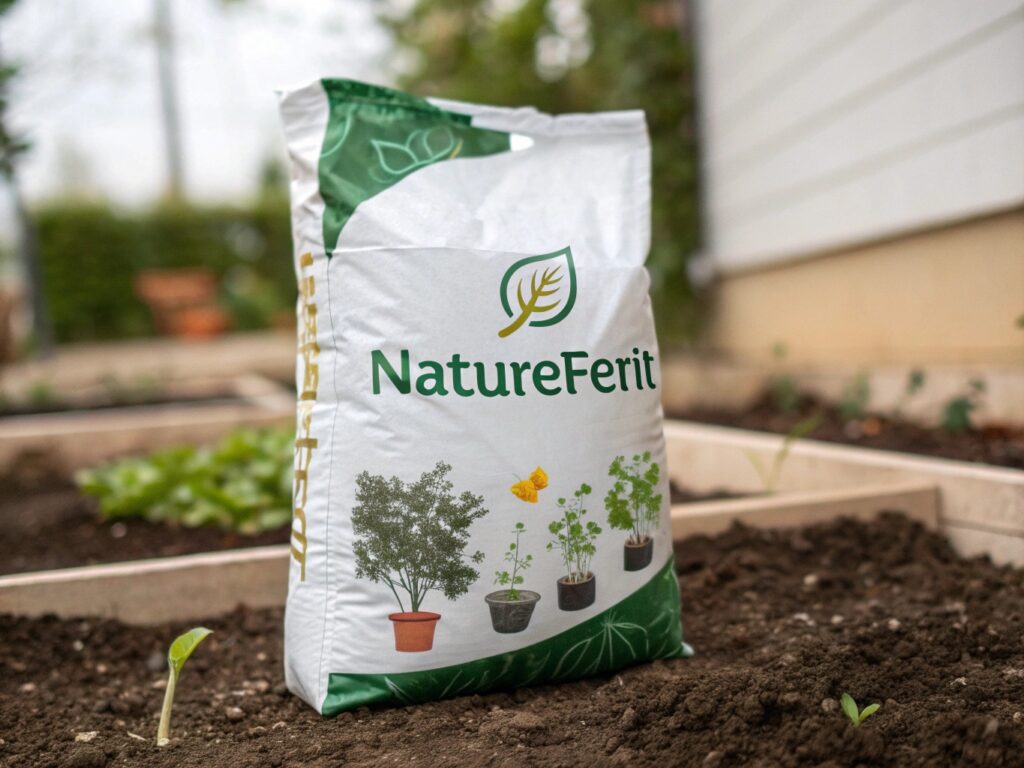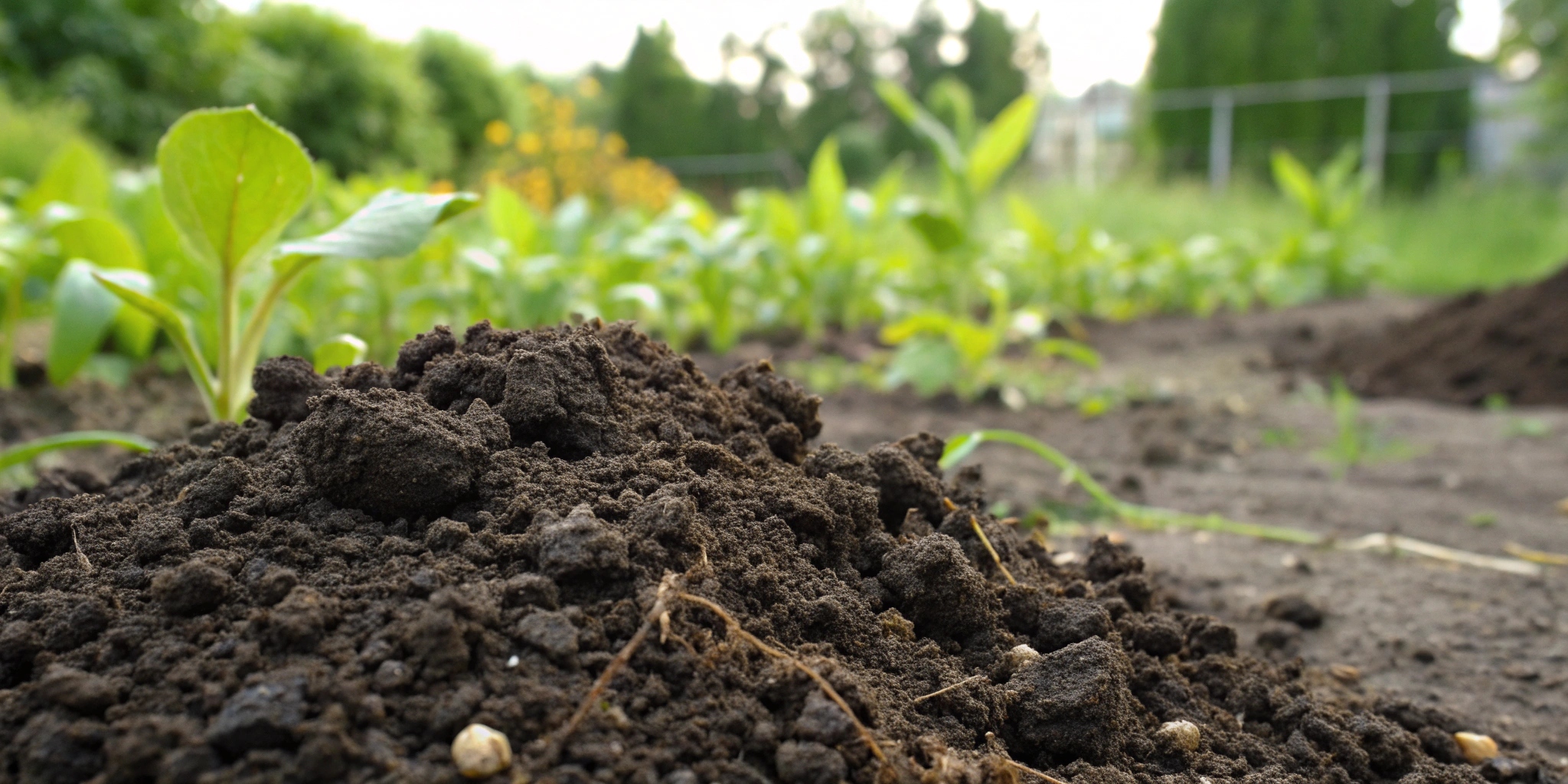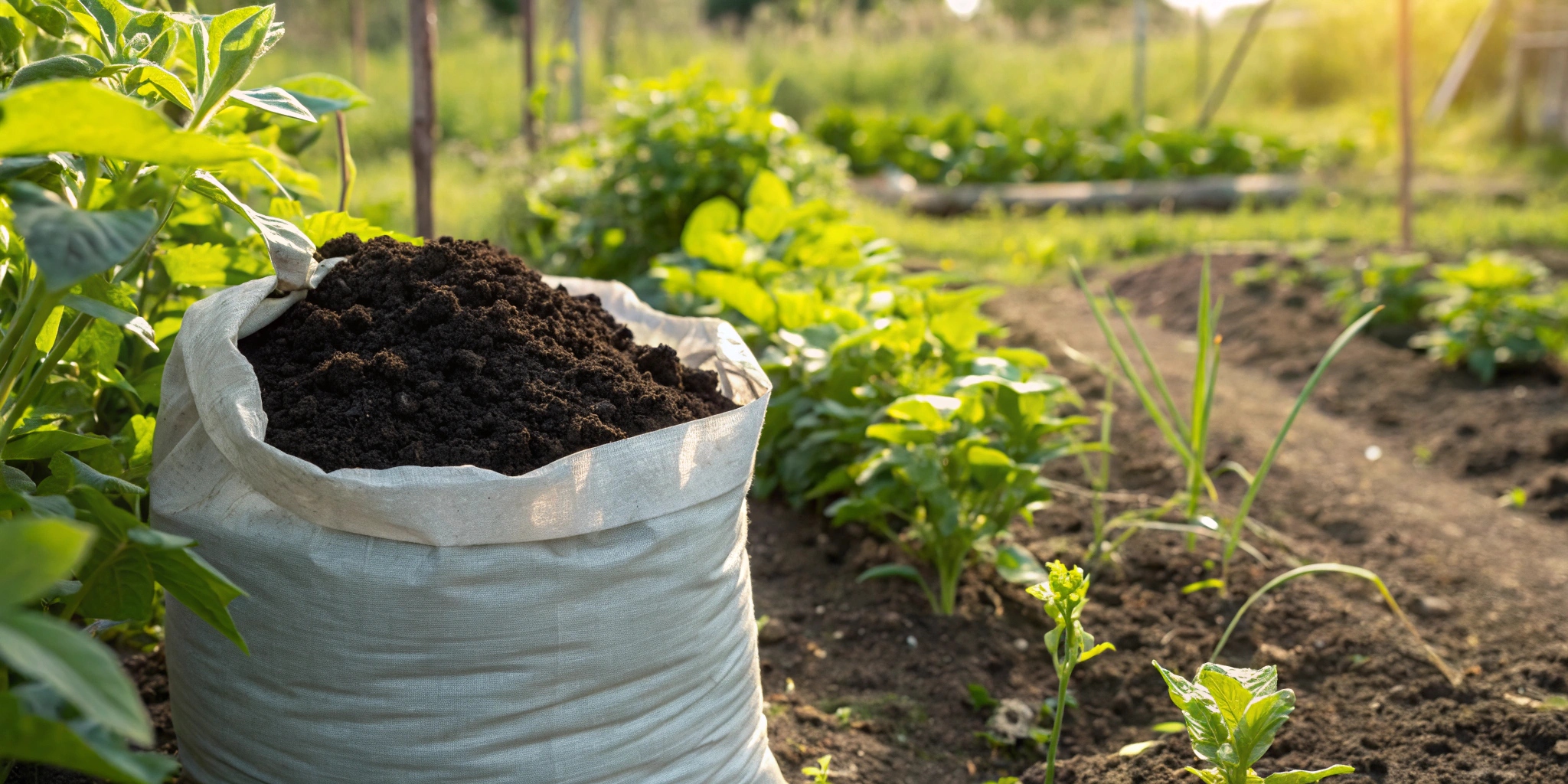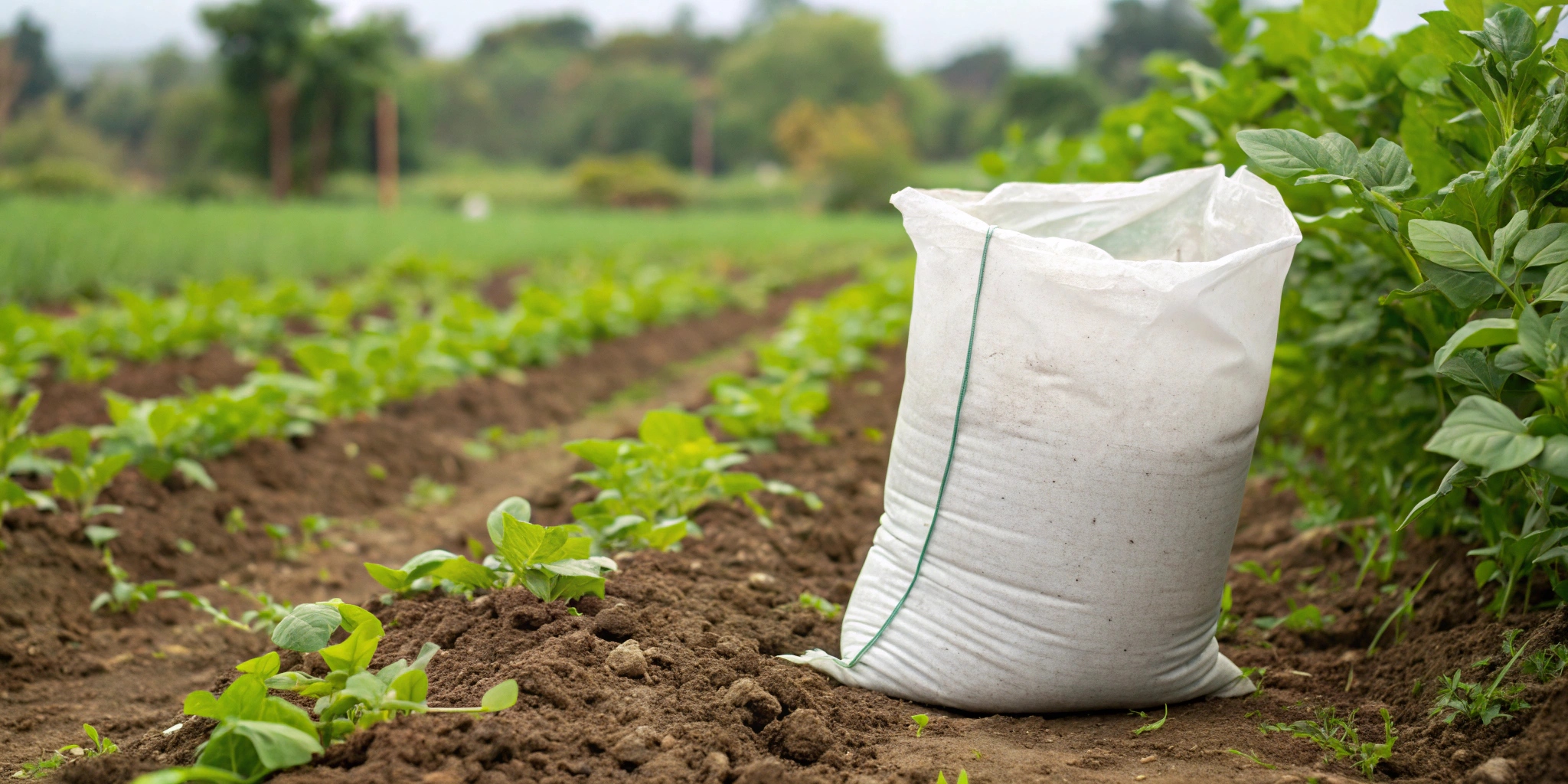Is Higher Organic Matter Content in Fertilizer Always Better?

You want the best for your crops, but Labels can be confusing. Believing higher numbers for organic matter always means better quality can lead you down the wrong path.
No, a higher organic matter content is not always better. Once an organic fertilizer meets the standard, its quality depends more on the source of its raw materials and nutrient balance rather than just hitting the highest possible percentage. Quality over sheer quantity is the key principle here.

It's easy to get caught up in the numbers game, thinking bigger is always better. I remember a client who was adamant about finding a fertilizer with the absolute highest organic matter percentage he could find. He thought it was a shortcut to perfect soil. But the real story of soil health is more complex than just one number on a bag. The true value comes from understanding what that number represents and what else is working alongside it. So, let's break down what really matters when we talk about organic matter.
Is high organic matter in soil good?
You strive for rich, fertile soil for your crops. But can you have too much of a good thing like organic matter? It's a common question I hear.
Yes, generally, high organic matter is very good for soil. It improves structure, boosts water retention, and increases nutrient availability. However, the type and state of decomposition of that organic matter are critical. Balance is the ultimate goal, not just a high number.

Having high organic matter is like building a great foundation for a house. It creates the ideal environment for plants to thrive. The organic matter acts like a sponge, holding onto water so your plants have it when they need it, especially during dry spells. It also prevents soil from becoming compacted, allowing roots to grow freely and access oxygen. Think of it as the pantry for your soil’s ecosystem.
But it’s important to consider the source. Fresh, undecomposed materials can temporarily tie up nitrogen in the soil, making it unavailable to your plants. This is why well-composted organic matter1 is usually preferred. It's about a balanced system.
| Benefits of High Organic Matter2 | Potential Issues if Unbalanced |
|---|---|
| Improved Soil Structure3 | Can tie up nitrogen if not decomposed |
| Increased Water Retention | Potential for nutrient imbalances |
| Enhanced Nutrient Availability | May alter soil pH undesirably |
| Supports Microbial Life | Source material could contain contaminants |
Are fertilizers rich in organic matter?
You see "organic fertilizer" on the bag and assume it's loaded with organic matter. But what does that label really tell you? Let's clear up this common point of confusion.
Yes, by their very definition, organic fertilizers are rich in organic matter. This is their main feature. They are made from carbon-based materials from once-living organisms, unlike synthetic fertilizers that only supply chemical nutrients without building the soil's organic content.

When we at NatureFerti talk about organic fertilizer4, we are talking about products derived from natural sources. This includes things like animal manure, plant compost, bone meal, and fish emulsion. These materials contain carbon compounds, which are the essence of organic matter. This is the fundamental difference between organic and synthetic approaches. Synthetic fertilizers are like giving a person a vitamin pill; they provide specific nutrients but no real food. Organic fertilizers are like giving them a full, balanced meal. They provide nutrients while also improving the structure and health of the soil itself.
I've seen customers choose a cheaper organic fertilizer only to be disappointed. Often, it's because the raw materials were poor quality, like undigested sludge or poorly composted waste. The source of the organic matter is just as important as the amount.
| Feature | Organic Fertilizer | Synthetic Fertilizer |
|---|---|---|
| Primary Content | Carbon-based organic matter | Mineral salts (e.g., nitrogen, phosphorus) |
| Soil Impact | Builds long-term soil structure5 | Does not improve soil structure |
| Nutrient Release | Slow and steady | Fast, can lead to runoff |
| Microbial Food | Yes, fuels soil life | No, can harm microbial life |
Why does increasing organic matter content in soils usually increase biological activity?
Your soil might seem lifeless and your plants are struggling. You've heard adding organic matter helps, but how does it actually wake up the life in your soil?
Increasing organic matter literally feeds the soil. It provides the essential food and energy, mainly carbon, for a huge community of microorganisms like bacteria and fungi. These microbes are the engines of soil health, making nutrients available to your plants.

Think of your soil as a city. The microorganisms6 are the workers, and organic matter is the food supply that keeps them all working. Without it, the city cannot function. When you add high-quality organic matter7, you are providing a feast for bacteria, fungi, protozoa, and even larger creatures like earthworms. These microbes get to work breaking down the organic matter. In the process, they unlock nutrients that were trapped inside it, converting them into a form that plant roots can easily absorb. They also secrete substances that act like glue, binding soil particles together to create a good, crumbly structure. This improves water drainage and air circulation. It’s a beautiful, living system.
Here's how it works:
- You Add Organic Matter: This is the food source (carbon).
- Microbes Consume It: The microbial population grows and multiplies.
- Nutrients Are Released: Microbes break down the matter, releasing plant-available nutrients.
- Soil Structure Improves: Microbial activity and byproducts create healthy soil.
- Plants Thrive: Healthy soil leads to strong, resilient plants.
How is organic fertilizer better?
Choosing a fertilizer can feel overwhelming. You've heard 'organic' is the better choice, but what specific advantages does it offer your crops and your business for the future?
Organic fertilizer is better because it focuses on building long-term soil health, not just providing a short-term fix for plants. It improves soil structure, water retention, and microbial life, creating a resilient and sustainable growing environment for years to come.

The key advantage of organic fertilizer is its holistic approach. Instead of just force-feeding the plant with concentrated chemicals, it feeds the soil. This creates a robust ecosystem that supports the plant naturally. The nutrients in organic fertilizers are released slowly, as the microbes break them down. This slow-release mechanism means your plants get a steady supply of food, which reduces the risk of nutrient burn. It also means less nutrient runoff8 into our waterways, which is a big win for the environment.
At NatureFerti, we see this as investing in your most valuable asset: your soil. Building healthy soil with organic matter, biostimulants, and other natural inputs pays you back season after season with stronger plants, better yields, and increased resilience to stress like drought. It’s a smarter, more sustainable strategy for long-term success.
| Aspect | Organic Fertilizer | Synthetic Fertilizer |
|---|---|---|
| Timeframe | Long-term soil health9 | Short-term plant growth |
| Nutrient Release | Slow, sustained, low risk | Fast, high risk of burn/runoff |
| Soil Structure | Improves and builds it | Degrades it over time |
| Sustainability | High (builds soil capital) | Low (depletes soil, requires reapplication) |
Conclusion
Ultimately, a quality organic fertilizer isn't about the highest organic matter number. It’s about the balance of quality raw materials that build healthy, living soil for long-term success.
1. This link will explain the importance of using well-composted materials for maintaining soil nutrient balance and plant health. ↩
2. Exploring this resource will provide insights into how high organic matter can enhance soil health and plant growth. ↩
3. Discover how improved soil structure can lead to healthier plants and better crop yields by exploring this informative resource. ↩
4. Explore the benefits of organic fertilizers to understand how they enhance soil health and provide balanced nutrients for plants. ↩
5. Discover how organic matter contributes to better soil structure, promoting healthier plant growth and sustainability. ↩
6. Microorganisms are vital for nutrient cycling and soil structure. Discover their benefits for sustainable agriculture. ↩
7. Understanding organic matter's role is crucial for improving soil health and plant growth. Explore this link to learn more. ↩
8. Learn about the impact of nutrient runoff on our waterways and the environment, and why it's crucial to minimize it. ↩
9. Discover effective practices for enhancing soil health, which is vital for sustainable farming and plant growth. ↩